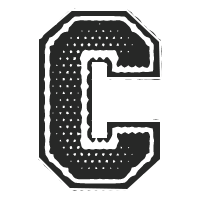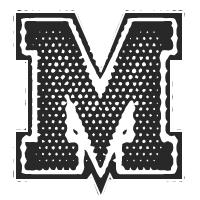The College Recruitment Process
| Guidelines for Marketing Yourself as an Athlete and Playing Sports in College | |
|
Many Wooster School student-athletes wish to pursue playing sports in college. We have numerous alumni/ae who have successfully played at competitive Division I, Division II, and Division III schools. Many factors need to be considered when a student is thinking about playing sports in college. Some of the questions athletes need to ask of themselves are: Do I want to play a sport in college? Am I passionate about this (or these) sport(s)? Am I physically and mentally capable of playing at a higher level? How much time am I willing to commit to this sport each day? Do I want to play more than one sport in college? At what level would I like to play? Wooster has plenty of resources to help student-athletes determine which the best track is for them. Students are encouraged to seek out the Athletic Director as the initial step.
Many athletes make the mistake of thinking that playing for larger high schools will improve his or her chances of gaining recognition by college Coaches. This is simply not true, unless the high school is one of the top teams in the nation in the sport of interest. The fact is that it is the work a student-athlete does outside of the high school team will get him or her recognized. I’m referring to college showcases, premier teams, national tournaments, highly rated camps, and the like. Once a student is on the radar, colleges may choose to visit to see a game. Marketing oneself as an athlete is hard work. It takes a great deal of time and effort and this process begins freshman year. There are differences between Division I, Division II, and Division III, programs and there are differences in programs within each division. All of this varies from sport to sport, and a student needs to research on his/her own and with his/her Coach to see which program would be the best fit. The information below is designed to help guide athletes through the college recruiting process. Athletes will learn about the timeline of when and how to best be seen by college Coaches and when to contact Coaches. In addition to this recruiting timeline, athletes can find helpful information about differences in divisions, recruiting rules, registering to the clearinghouse and much more at www.ncaa.org.
Time-Line:
Middle School Years:
if you choose to pursue athletics in college.
to which sport you would like to pursue in college.
Athletic Director about the camps that would be best for you).
9th Grade:
if you choose to pursue athletics in college.
to which sport you would like to pursue in college.
Athletic Director about the camps that would be best for you.)
10th Grade:
recruitment venues to gain exposure.
or III) you are interested in playing. Utilize your Coaches and outside individuals when making this assessment. Go see teams at various levels compete. Be honest with yourself, and most importantly, watch the schools you are interested in playing for compete in your sport. Watch how the Coaches Coach and how the players react to their styles.
coaching).
athletic camps attended, club teams, awards, height and weight, statistics, positions played, standardized test scores, GPA, AP classes taken, etc.
The letter should include introducing yourself, providing detailed information about your size, academic qualifications, interests, personal statistics, awards and honors. You should mention your desire for college competition, reasons for believing you can participate successfully, and your general reasons for wanting to go to that college.
discuss the college list. Compile a tentative list of prospective schools.
be participating in a tournament, showcase, and/or camp.
highlights video.
interview at the college. (Important: Coaches cannot return your call before July 1).
prospective player – contact may include a telephone call, official or unofficial visit to the campus.
when you plan to visit.
only upon request from a prospective college Coach.
12th Grade:
tournament or play-off game, send emails or newspaper clippings that document your contributions, send them your senior year schedule of competition.
Questions to Ask During Your College Visit
Before you decide to make your first visit to a college, it’s a good idea to think carefully about the kind of information you are going to need to make an informed college selection. Once you do, you’ll be able to ask the right kinds of questions. The following should get you started:
Ask the Recruiter:
position?
philosophy? Are you considering any changes?
program?
Ask the Players at the School:
does it change whether you’re in-season or out of season?
Ask the Non-Athletes at the School:
Ask of School Officials and Admissions Officers:
athletes playing my sport?
majors) while participating in my sport?
Questions to Ask Yourself Following Your Visit
You will have to ask yourself several important questions after you have visited colleges in order to select the right school for you. The questions below will provide you with a good start. Take the time to think carefully about your answers and be sure to talk to the College Guidance Counselor, your Coach, your Athletic Director, and your parents about answers that might be difficult for you. Remember that you want the right athletic and academic experience.
considering?
(If so, they might have been less than honest.)
measure up to the athletes already there?
career goals? Were they knowledgeable about your intended program of study?
associating with them for four years?
school and your athletic participation?
Guidance counselor? This is perhaps the most important question – so give it serious thought.
|
|
| Sample Letter to College Coaches
Dear Coach Auriemma, I would like to take this opportunity to introduce myself to you. I am currently a junior at Wooster School and with the completion of this current season, I have played varsity basketball for the past three years. I am 5’8” and weigh 130 pounds and have played both shooting guard and small forward. I was selected as the Most Valuable Player on the team last season, have earned three consecutive All-League honors, and was selected as a New England All-Star for the past two years. Currently I am averaging 14 points, 6 steals, 6 assists, and 8 rebounds per game. Our team has won our league title during all three of my years on the team. I have also attended the Nike college showcase in Hartford, CT and played in the AAU national tournament in Chicago, IL.
In addition to playing basketball, I have been a starter on our league championship varsity girl’s lacrosse team. My grade point average in a “5”, which is roughly an A- in comparable schools. I am interested in both math and science and will most likely apply to the College of Arts and Science. My career goals are not yet determined. I have watched your team play several times and I think, with much work ahead, that I am ready to play at the UCONN level.
My Coach, Dave MacNutt, has encouraged me to write this letter. Feel free to contact him at 203-830-3991 or david.macnutt@woosterschool.org for further information. Please forward any materials that I need at this point to further express my interest in your program. I hope to hear from you. Sincerely,
Your Name
NCAA Rules and Regulations
High School athletes are bound by the same NCAA rules and regulations that college players are. Your failure to be aware of these requirements could jeopardize your athletic future. Read the following NCAA rules carefully and share them with your parents. Be sure to talk with your College Guidance Counselor, Athletic Director, and Coach if you have any questions.
Contacts with College Coaches:
contact is defined as any face-to-face meeting involving even a simple “hello.”
after September 1 of their junior year.
within the NCAA rules. Refer to the NCAA guide for the “College Bound Student-Athlete” for specific information. The guide can be viewed on the NCAA’s website at http://www2.ncaa.org.
to sign with a particular college.
Visits to College Campuses:
universities. Be sure to select your visits wisely. Remember that this restriction applies even if you are being recruited in more than one sport.
high school transcript and a score from your PSAT, PACT, plus SAT, or ACT taken on a national testing date.
the Student Release form.
|
Helpful Links
College Recruitment Information:
- http://collegesource.org – Categorized links to hundreds of other resources for college.
- http://collegeconfidential.com – Topics range from test prep, admissions, college life, financial aid and more.
- http://campustours.com – Virtual online tours of colleges throughout the country.
- http://allaboutcollege.com – Links to individual schools by State, as well as other useful information.
- http://collegelink.com – College searches, test prep, financial & scholarship information.
- http://www.Xap.com – a powerful college search engine that allows users to provide specific criteria for school searches.
- http://www.collegeboard.com – Topics include, test prep, college search, admissions advice, financial information.
- http://www.campuschamps.com – Information for high school athletes.
- http://www.nytimes.com/ref/sports/2005_RECRUIT_SERIES.html – A New York Times series dedicated to College Athletic Recruiting.
- http://www.ncaaclearinghouse.net is your comprehensive guide to playing sports in college. The site includes information such as:
o An online version of NCAA Guide for the College-Bound Student-Athlete.
o Links to the NCAA website.
o Core-course listings for high schools.
o Online information about Division I and Division II initial-eligibility requirements.
o Online Frequently Asked Questions (FAQs).
Rules per Sport:
- Please visit: http://www2.ncaa.org/portal/media_and_events/ncaa_publications/playing_rules/ to download the rules for the following sports (for free):
o Boys’ Soccer
o Girls’ Soccer
o Girls’ Volleyball
o Boys’ Baseball
o Boys’ Lacrosse
o Boys’ Tennis
- Please visit http://nfhs.org to download the rules for the following sports (for a small fee):
o Cross Country:
o Basketball:
o Softball:
- Please visit http://uslacrosse.org to download the rules for girl’s lacrosse (for a small fee).
- Please visit http://usga.org to download the rules for girl’s lacrosse (for a small fee).










